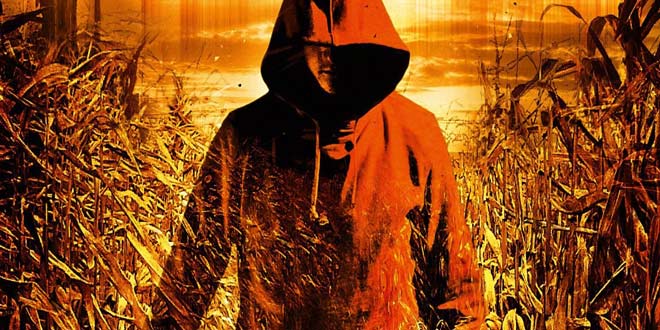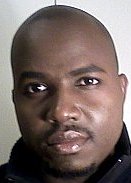Whenever
conflict erupts, the first human reaction is to play the ‘blame game.’ This
unfortunately results in name-calling and endless arguments that never get
resolved. People find themselves tyrannised by ‘either-or’ instead of embracing
the genius of the ‘And.’
Staying centred and not polarising means parties involved in a conflict are able to
hold on to their views whilst giving those holding an opposing view permission to
do the same. This is not about converting others or forcing them to change what
they are and assimilate to the dominant view. According to this suggestion
there are no protagonists or antagonists, all parties ought to have a single
idea in mind, which is resolving the conflict. Therefore self-restraint is a
good quality to exercise whenever people holding two opposing views find
themselves having to converse and come up with a solution. For example, Jeremiah,
a high school deputy principal found himself in volatile conflict situation
whereby his leadership style was severely criticised by educators and general
school staff. Instead of being defensive, he allowed the complainants adequate
space to voice their concerns. Jeremiah’s reflection of the conflict resolution
is as follows:
I found myself at one stage during the
session being shot at and hammered with complaints, rage and blames, but to a
certain extend I have caught their drift and realized how tough my leadership
style hits on my subordinates and colleagues.
This
suggestion implies that conflict does not have to end in estrangement or
animosity. Parties can maintain contact while taking a break from the heated
tension. Stepping back from the conflict, for a while, can give each party
involved space to reflect and evaluate their point of view. As they come
together again they can utilize dialogue as a way of connecting with each
other. This skill, once harnessed, can allow parties to come out of the
conflict with a third or even fourth perspective.
William
Isaacs (1999) argues that most of our human conversations are based around
discussion, which essentially means ‘to break apart,’ instead of being centered
around dialogue, meaning ‘through the word.’ This was demonstrated in one of
the communities in Kwazulu Natal, South Africa, whereby for a long time human
relations were characterized by animosity and hatred. One of the community
leaders, Jabu, decided to maintain contact with all residents regardless of
political differences or past disagreements. When asked how she did this she
said:
I
started attending my opponent’s family events, especially funerals. My friends
could not understand why I was doing this. They were concerned about my life
saying that people might poison me. But I told them that we couldn’t be
controlled by fear forever. We need to reach out to one another in order to
build our community.
1.3. Recognise the existence of different
styles
Conflict
can be resolved quicker if both partners can recognize the existing different
management styles. This is where the need to become aware of the self and of
others arises, thus giving each party the opportunity to be authentic and voice
their opinions from the heart.
Whenever
people from different cultures, age groups, and sexual orientations come together,
there potential for conflict is heightened. This occurred at a school
leadership camp whereby educators from a Soweto school had to conceive a
development plan along with 12 grade 10 learners. During the planning sessions
an outspoken male learner assumed responsibility to facilitate the session
whilst the educators participated in the brainstorming session.
During
the session, two male educators were seen to be whispering to one another and
also using a vulgar language. This action was seen as disruptive to the process
and the young facilitator confronted these educators. This confrontation was
perceived to be disrespectful by the two educators, as they did not expect the
young learner to have the courage to confront them. The challenge of age played
a major role here, as these two adults did not know how to handle this young
man who was now asserting himself as a leader. During the mediation session
they said: “We don’t know why we are here. We are much older than these young
people and we deserve to be respected.” The young learner responded to this
statement by saying: “Look, when we arrived here we were asked to establish
some ground rules. And one of those rules was that we must refrain from using
vulgar language. The only reason I confronted my educators was that they were
breaking our agreement. I do respect them. But I feel they also need to respect
us.”
1.4. Identify your preferred style
Whenever
people are caught up in a heated conflict situation, differences manners of
response may occur. Some people may opt for avoidance whilst others may want to
tackle the issues head-on through direct confrontation. For example, Tumelo,
founder of a fledgling training and development company prefers to avoid conflict
whilst Devon, his associate trainer prefers a confrontational style. These two
opposing styles can sometimes fuel frustrations between these two colleagues as
they are not aware each other’s preferred style of handling conflict.
1.5. Be creative and expand your style
repertoire
Human
beings have the inherent capability to think creatively. This quality can be
useful even in a conflict situation, especially when the situation seems too
complex to resolve. This is essentially about finding solutions outside of the
normal frame of reference. In a conflict situation, creativity allows us the
opportunity to explore ways to come up with unconventional solutions, which we
may not have been able to conceive if we remained rigid to the way we have
always done things.
James, a
foreman at Quasigovernment Company in the Northern Cape, South Africa, found
himself dealing with a workforce that could not work cohesively. After attending
a conflict management workshop, he initiated a new way of making everyone feel
welcome in the yard. Every morning he would make the effort of greeting his
colleagues with the expression of “LOVE.” At first, the workers battled to
embrace this action, however, after a few sessions, the whole workforce had
bought into the new culture.
1.6. Recognize the importance of conflict
context
Conflict
often occurs in a particular context at a particular time and place. This means
conflict is not only confined to the interpersonal context only, it is also
determined by the historical, social, economic, and political contexts. For example
Balebetswe, an educator at one of the high schools in South Africa, had been
accused as being moody and difficult to deal with. During a mediation session,
she eventually opened up and spoke about how she has felt rejected by her
school leadership and fellow educators. She mention how when her husband died
none of the school staff attended the funeral and how when she was sick no one
came see her at hospital. This situation highlights the importance of analyzing
the context wherein a conflict occurs. In this instance, there is a cultural
context, whereby there is an expectation that when one is mourning the loss of
a loved one, his or her colleagues ought to give ongoing support and even
attend the funeral. Since this was not done, Balebetswe held a grudge against
the school leadership and her colleagues, which lasted until this day.
Sometimes
people’s actions cause unnecessary conflict because they did not take the
context into consideration. Understanding the context can help in framing the
conflict within the cultural, social, political, and historical environments in
which it happens. For example, Sandile, was buying an item at Chinese shop when
he overhead the store owner calling his assistant who is black with the term
“Boy.” This situation enraged Sandile so much that he had to confront the storeowner,
and demanded, “Why do you call this grown man a boy? Don’t you know his name?”
In this example we see the historical and political context at play, where
someone who has disregard for where South Africa comes from as far these
factors are concerned, can run the danger of finding him/herself in the
thistles of a complex conflict situation.
1.7. Be willing to forgive
Finally,
it is important to consider forgiveness when resolving conflict. This human
quality has transcended historical contexts and culture. This means letting go
of – not forgetting- feelings of revenge, as Martin and Nakayama (2007) put it.
The cliché “Forgive and forget” has been used loosely by many South African in
as far as the country’s apartheid past is concerned. Our experience, though,
has given us a different picture that although people can forgive, it is often
difficult and even impossible to forget.
At the
same time forgiveness is a quality that is integral in our human existence.
Whenever people battle to forgive others, they end up affecting other areas of
their lives such as their physical health. And most importantly, their
relationships suffer as a result of their unwillingness to forgive.
Sources
Consulted
1. Isaacs, W, 1999, Dialogue and the Art of thinking together, A pioneering approach to
communicating in business and in life, Doubleday
2. Martin, J.N, Nakayama T.K, 2007, Intercultural Communication in Contexts, McGraw-
Hill International Edition

 Olefile is a creative communicator, strategist and facilitator with an enormous experience in working with people of diverse backgrounds. He is part of Young & Able’s Dynamic Team of speakers and consultants. He started his people development career with Youth For Christ in 1995, where he traveled throughout South Africa doing lifeskills in schools, using creative mediums such as drama and dance. Olefile was also part of a very successful International Musical Band, Khanyisa touring USA and Slovakia in 2001. He has worked with The Salvation Army where he assisted in training teams and youth leaders in creative communication. He currently works with Young & Able as a consultant.
He is involved in leadership development and is an excellent facilitator of creative concepts for strategy development and personal creativity. As a speaker he has dynamic stage presence and an ability to relate to big and small crowds.
Olefile is a creative communicator, strategist and facilitator with an enormous experience in working with people of diverse backgrounds. He is part of Young & Able’s Dynamic Team of speakers and consultants. He started his people development career with Youth For Christ in 1995, where he traveled throughout South Africa doing lifeskills in schools, using creative mediums such as drama and dance. Olefile was also part of a very successful International Musical Band, Khanyisa touring USA and Slovakia in 2001. He has worked with The Salvation Army where he assisted in training teams and youth leaders in creative communication. He currently works with Young & Able as a consultant.
He is involved in leadership development and is an excellent facilitator of creative concepts for strategy development and personal creativity. As a speaker he has dynamic stage presence and an ability to relate to big and small crowds.
